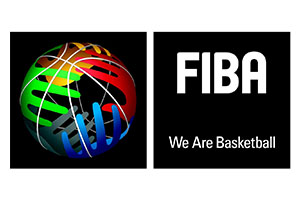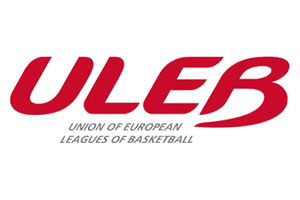At the end of June, the FIBA Europe Board met in Budapest in Hungary. One of the main topics of discussion revolved around the ongoing project of reshaping the current European club presentations. The board received presentations which had been compiled by the two separate working groups who were working on behalf of FIBA and FIBA Europe to draw up new proposals for the top and second-top tiers of European club basketball.
A new top tier tournament in European basketball is expected
 With respect to the top tier of club basketball in Europe, the board reached the conclusion that FIBA, who already approved of the proposed model at their previous Executive Committee, and FIBA Europe are now ready to launch a new basketball competition for the top teams. It is believed that this new level of competition will offer a high level of potential growth, and there has been a high level of financial support secured by the working group to ensure the new league can be sustained. It has been agreed to combine resources and investment from FIBA and FIBA Europe into the project.
With respect to the top tier of club basketball in Europe, the board reached the conclusion that FIBA, who already approved of the proposed model at their previous Executive Committee, and FIBA Europe are now ready to launch a new basketball competition for the top teams. It is believed that this new level of competition will offer a high level of potential growth, and there has been a high level of financial support secured by the working group to ensure the new league can be sustained. It has been agreed to combine resources and investment from FIBA and FIBA Europe into the project.
It was agreed that the Working Group should present their proposals to the clubs and all other relevant stakeholders as soon as possible in order to strengthen the overall proposal and to launch the proposal as quickly as possible.
A new second tier tournament for European club basketball is on its way
With respect to the second level of club competition in Europe, the following aspects have been approved by the board:
- For there to be a new second level of competition which will involve all of the clubs who are not participating the highest level of competition.
- This competition will begin in the 2015/16 season.
- The competition will involve up to 100 clubs from across more than 40 countries, operating at different stages of the competition.
- After the qualifying rounds have concluded, the first group phase will include 64 teams, referred to as the Round of 64. This round will consist of 16 groups, in a round-robin format, with 4 teams in each group. The two best ranked teams in each group progress.
- The next stage is the round of 32, which consists of 8 groups, in a round-robin format, with 4 teams in each group. The two best ranked teams in each group progress.
- There will be two play-off rounds, involving 16 and 8 teams respectively and then the competition will come to a climax with a final four event.
- Places for the competition will be allocated on the results of clubs in European club competitions and in their own domestic leagues. Teams that fail to qualify for the top level of European competition through the qualifying round will be placed into the second tier of club competition.
FIBA Europe is fully committed to investing a substantial sum of resources, financial and otherwise, into this competition. The aim is to minimise the participation cost for all of the clubs involved with the competition and to provide performance bonuses for teams that progress to the next stage of the competition. This will be in place for every stage of the competition.
The tournament will rely on all of the national member federations to commit to registering their teams and there will be full co-operation with the leagues to ensure that this occurs.
Officially Recognised Competitions
The board heard that three regional leagues have held on to their officially recognised status. These three leagues are:
- The Baltic Basketball League (the BBL)
- The Baltic Women’s Basketball League (the BWBL)
- The Central European Women’s League (CEWL)
All of these leagues submitted the correct and required declarations in advance of the deadline.
The newly formed Adriatic League, the ABA, did eventually submit all required and requested documents to FIBA. This includes a standard declaration and a number of amended statutes which have adhered to previous remarks and notes made by FIBA and FIBA Europe. This league will carry on with the registration process, which will see it registered as a legal entity with respect to Croatian law, and it will hold a legal seat in the city of Zagreb.
 The board of FIBA Europe expressed satisfaction at the work that had been carried out by the national member federations and of all of the clubs in the area. The board highlighted the work that had been taken by the new Adriatic Basketball League. The Board looks set to inform the ULEB, the Union of European Leagues of Basketball about these recent developments, and the ULEB will be invited to act accordingly during their forthcoming General Assembly.
The board of FIBA Europe expressed satisfaction at the work that had been carried out by the national member federations and of all of the clubs in the area. The board highlighted the work that had been taken by the new Adriatic Basketball League. The Board looks set to inform the ULEB, the Union of European Leagues of Basketball about these recent developments, and the ULEB will be invited to act accordingly during their forthcoming General Assembly.
The Board has issued an invitation to the ULEB to propose four candidates, to form a short-list, for the co-optation of two representatives for the FIBA Europe Board. There has also been a request for the ULEB to propose six candidates, to form a short-list, to participate in the FIBA Permanent Working Group, with remit on club issues, which has just been established. The FIBA Central Board next meets in August and the precise number of participants will be agreed upon at this meeting.
The Board has acknowledged requests from FIBA and FIBA Europe for clarification on the matter of insurance for players partaking in national team events and tournaments. A decision has been made by the FIBA Executive Committee for the Working Group on League matters to undertake a review of the internal regulations relating to this matter.
 In the end, it was the team with home advantage in the Final Four that came out on top which led to joyous scenes in Tenerife. To be fair, Iberostar Tenerife have been one of the strongest teams throughout the tournament and would have been one of the favourites regardless of where the Final Four...
In the end, it was the team with home advantage in the Final Four that came out on top which led to joyous scenes in Tenerife. To be fair, Iberostar Tenerife have been one of the strongest teams throughout the tournament and would have been one of the favourites regardless of where the Final Four...  The first ever FIBA Champions League season draws to a close on Sunday evening and the scene is set for Iberostar Tenerife or Banvit looking to make history. Given that the Spaniards are playing at home, they will undoubtedly be the favourites for this clash but sometimes the pressure that is placed on teams playing...
The first ever FIBA Champions League season draws to a close on Sunday evening and the scene is set for Iberostar Tenerife or Banvit looking to make history. Given that the Spaniards are playing at home, they will undoubtedly be the favourites for this clash but sometimes the pressure that is placed on teams playing...